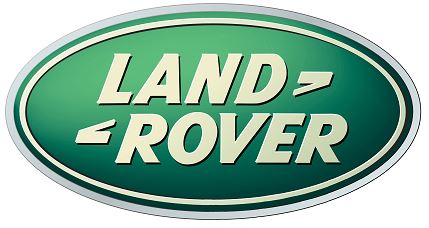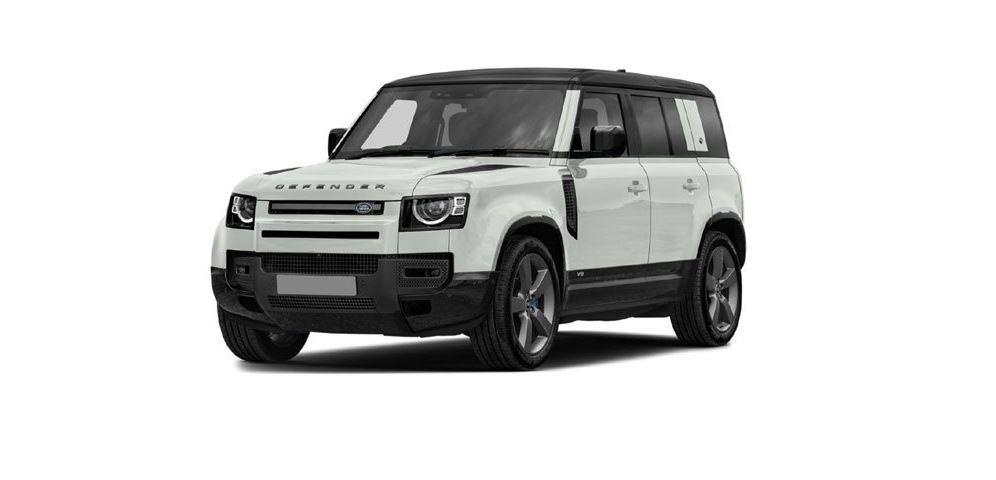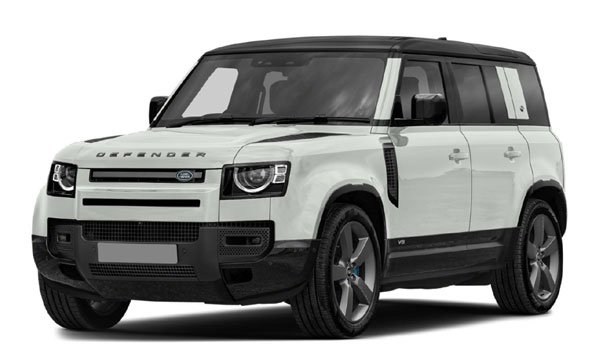 2023 Land Rover Defender Hybrid System
2023 Land Rover Defender Hybrid System
HYBRID SAFETY
WARNINGS FOR ELECTRIC AND HYBRID VEHICLES
In the event of a fault, damage, or fire affecting an electric or hybrid vehicle:
1. Always remember that the high voltage battery, subsystems, and components are energized and fully charged.
2. The high voltage battery, cables, and exposed electrical components pose a potential risk of electric shock.
3. The fumes from the ventilated and/or released high voltage battery are potentially toxic and inflammable.
4. Physical damage to the vehicle or to the high voltage battery may result in the immediate or delayed release of toxic and/or inflammable gases and in the fire.
Never disassemble, remove, or replace high voltage components, cables, or connectors. Tampering with the high voltage system can cause severe burns or electric shock, which may potentially result in serious injury or death.
The hybrid system has no serviceable parts. The high voltage cables and connectors are colored oranges for identification purposes. If maintenance or repair is required, always consult a retailer/authorized repairer. Failure to do so may affect the vehicle’s warranty.
The hybrid system is insulated and protected with covers and shields. The result is that:
- The system is insulated from the vehicle.
- The system is protected from the environment.
- Access is prevented by unqualified personnel.
The vehicle monitors the integrity of the hybrid system. If a hybrid system fault is detected, the instrument panel displays a relevant warning message and may also illuminate a warning lamp. See HYBRID SYSTEM WARNING MESSAGES.
HYBRID SYSTEM OVERVIEW
The hybrid system uses an internal combustion engine and an electric motor to drive the vehicle. The operation of the electric motor and the engine is controlled to improve the vehicle’s performance and fuel economy. The hybrid system is capable of sustained driving using only the electric motor, without producing any exhaust emissions.
The hybrid system automatically determines when it is appropriate to operate the electric motor and the engine based on driver demand and driving conditions.
The electric motor is powered via a hybrid battery. The instrument panel displays the current charge level of the hybrid battery and the remaining driving range.
The electric motor does not operate if there is insufficient charge in the hybrid battery.
The hybrid battery is charged in the following events:
- Using the vehicle’s charging cable to connect to an external charging station. CONNECTING A CHARGING CABLE.
- Regenerative braking: Occurs during light to moderate braking and when the vehicle is decelerating with the engine off. In these events, the electric motor recovers energy and recharges the hybrid battery. Under heavy braking, the vehicle’s braking system is also used to slow the vehicle. The instrument panel’s power gauge displays the regenerated energy.
The energy saves function stores energy in the hybrid battery for use at a later time. See SAVE.
In cold conditions below -18°C (0°F) charging before each driving event is recommended. Use vehicle preconditioning to set preferred charging periods to make sure the vehicle is sufficiently charged before driving. See VEHICLE PRECONDITIONING OVERVIEW .
HYBRID SYSTEM OVERVIEW
The hybrid system uses an internal combustion engine and an electric motor to drive the vehicle. The operation of the electric motor and the engine is controlled to improve the vehicle’s performance and fuel economy. The hybrid system is capable of sustained driving using only the electric motor, without producing any exhaust emissions.
The hybrid system automatically determines when it is appropriate to operate the electric motor and the engine based on driver demand and driving conditions.
The electric motor is powered via a hybrid battery. The instrument panel displays the current charge level of the hybrid battery and the remaining driving range.
The electric motor does not operate if there is insufficient charge in the hybrid battery.
The hybrid battery is charged in the following events:
- Using the vehicle’s charging cable to connect to an external charging station. CONNECTING A CHARGING CABLE.
- Regenerative braking: Occurs during light to moderate braking and when the vehicle is decelerating with the engine off. In these events, the electric motor recovers energy and recharges the hybrid battery. Under heavy braking the vehicle’s braking system is also used to slow the vehicle. The instrument panel’s power gauge displays the regenerated energy.
The energy save function stores energy in the hybrid battery for use at a later time. See SAVE.
In cold conditions below -18°C (0°F) charging before each driving event is recommended. Use vehicle preconditioning to set preferred charging periods to make sure the vehicle is sufficiently charged before driving. See VEHICLE PRECONDITIONING OVERVIEW .
ACOUSTIC VEHICLE ALERT SYSTEM (AVAS)
The Acoustic Vehicle Alert System (AVAS) automatically emits an external synthesized sound to enable pedestrians to be audibly aware of the vehicle’s presence. AVAS operates when only the electric motor is driving the vehicle at speeds less than 20 km/h (12 mph). See HYBRID SYSTEM OVERVIEW.
ELECTRIC VEHICLE (EV) MODE
The Electric Vehicle (EV) mode does not enable if the ambient temperature is too cold.
The EV mode uses an electric motor. The engine restarts if it is required to support high driving demands.
Deactivating the auto stop/start system also deactivates the EV mode. See DEACTIVATING AUTO STOP/START.
Make sure to deactivate the auto stop/start system if the vehicle is to be driven through water, i.e., wading. In this event, the engine should be used at all times. Failure to do so can result in damage to the vehicle.
Press the EV button on the center console to cycle through the EV modes Press the EV button on the center console to cycle through the EV modes. The EV modes available are:
- HYBRID: Operation of the electric motor and the engine is automatically determined by the vehicle, depending on the driving conditions and driver demand. The predictive energy optimization feature automatically operates if a navigation route is set. See PREDICTIVE ENERGY OPTIMISATION.
- EV: Electric vehicle mode.
- SAVE. See SAVE.
The selected EV mode is displayed in the instrument panel. See HYBRID VEHICLE INFORMATION.
The engine may stay on longer than expected under certain conditions. These include:
- During engine re-learning following vehicle handover or a software update.
- To help reduce premature aging of the engine oil.
The operation of the engine suspends the operation of the EV mode. In this event, the EV message illuminates grey in the instrument panel to confirm the status change.
The following conditions may prevent the EV mode from being enabled, or may prompt an engine restart if the EV mode is already active:
- Selecting Sport (S). See AUTOMATIC TRANSMISSION.
- Mud ruts or sand program is selected. See TERRAIN RESPONSE OPERATION.
- A steering wheel paddle shift is used to select a gear. See AUTOMATIC TRANSMISSION.
- The wade sensing feature is currently active. See WADE SENSING.
- The auto stop/start system is deselected. See DEACTIVATING AUTO STOP/START.
- The vehicle’s battery charge levels are too low.
- The vehicle’s batteries are not at the required operating temperature.
- The vehicle’s current power demand exceeds the electrical power capability, displayed in the instrument panel’s power gauge. See HYBRID VEHICLE INFORMATION.
- High demand from the heating and ventilation systems.
- The bonnet is opened.
In all of the previously listed events, the instrument panel displays a relevant message. Also, the instrument panel does not illuminate the EV message.
SAVE
Selecting the energy save mode stores energy in the battery for use at a later time. The driver determines when to use the saved battery charge level by deselecting the energy save mode, e.g., driving in urban areas. See ELECTRIC VEHICLE (EV) MODE.
When driving with a fully charged battery, a maximum level of at least 80% can be reserved. This allows energy recuperation and allows the battery to operate more efficiently.
Manually selecting the Electric Vehicle (EV) hybrid mode exits the energy save mode. If required, the energy save mode has to be selected again.
HYBRID SYSTEM WARNING MESSAGES
If the instrument panel displays a hybrid system-related critical warning message, the critical message warning lamp illuminates. An audible tone also sounds. See CRITICAL WARNING MESSAGE (RED).
The critical warning messages are as follows:
| Critical warning message | Action |
|---|---|
| Electric Drive Only. Performance And Range Reduced | The vehicle can only be powered by the electric motor and has a limited range. Stop the vehicle when it is safe to do so. Contact a retailer/authorized repairer. |
| Stop Safely. Electrical Fault Detected | The vehicle has a limited range, stop the vehicle at the nearest safe location. Contact a retailer/authorized repairer. |
| OK to Drive with Caution Hybrid System Fault Detected | The vehicle can still be driven. Contact a retailer/authorized repairer as soon as possible. |
| Charge Hybrid Battery. Hybrid Battery Too Cold¹ | Find a safe location, warmer conditions or a charging source before stopping. |
¹ Extremely cold climate conditions can affect the hybrid battery and limit the ability of the car to re-start.
If the instrument panel displays a hybrid system-related general warning message, observe the required action in the following table:
| General warning message | Action |
|---|---|
| OK to Drive with Caution Hybrid System Fault Detected | The vehicle can still be driven. Contact a retailer/authorized repairer if the warning is still present at the end of the journey. |
| Hybrid Battery Fault | The vehicle can still be driven, but the hybrid system’s functionality may be reduced. Contact a retailer/authorized repairer as soon as possible. |

